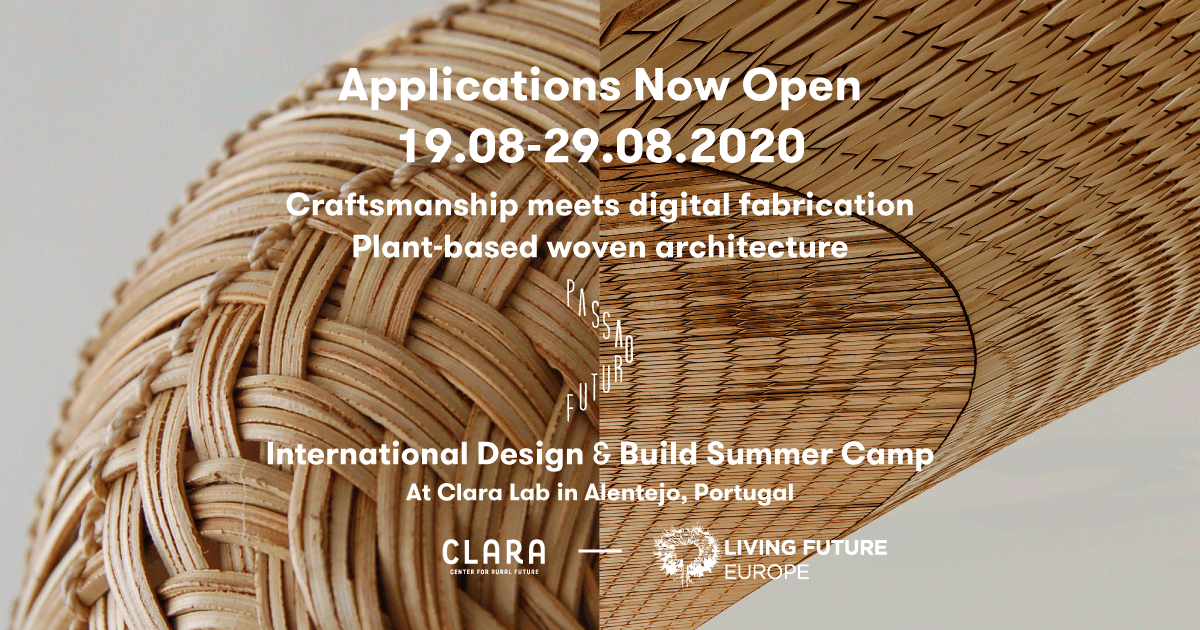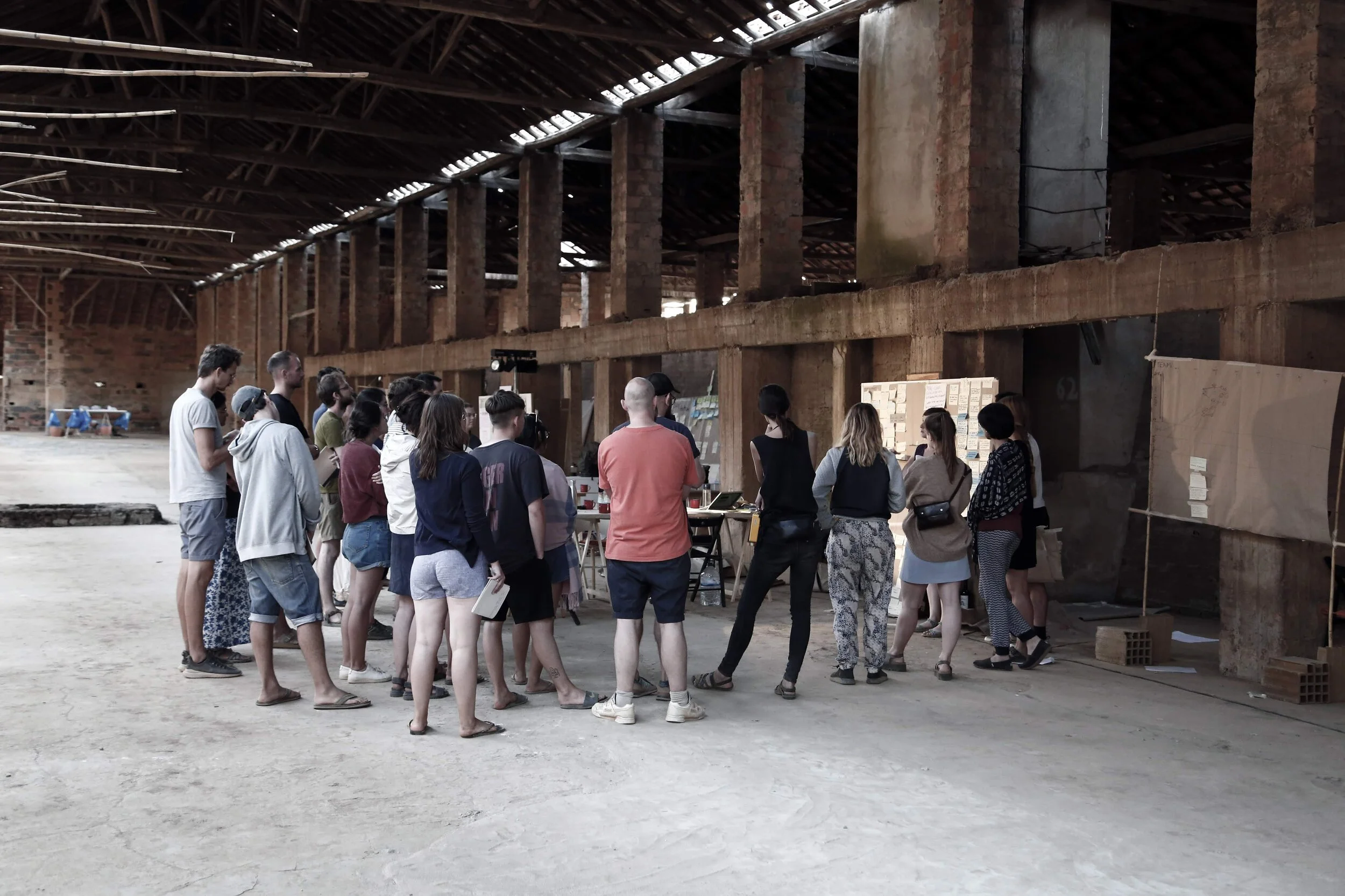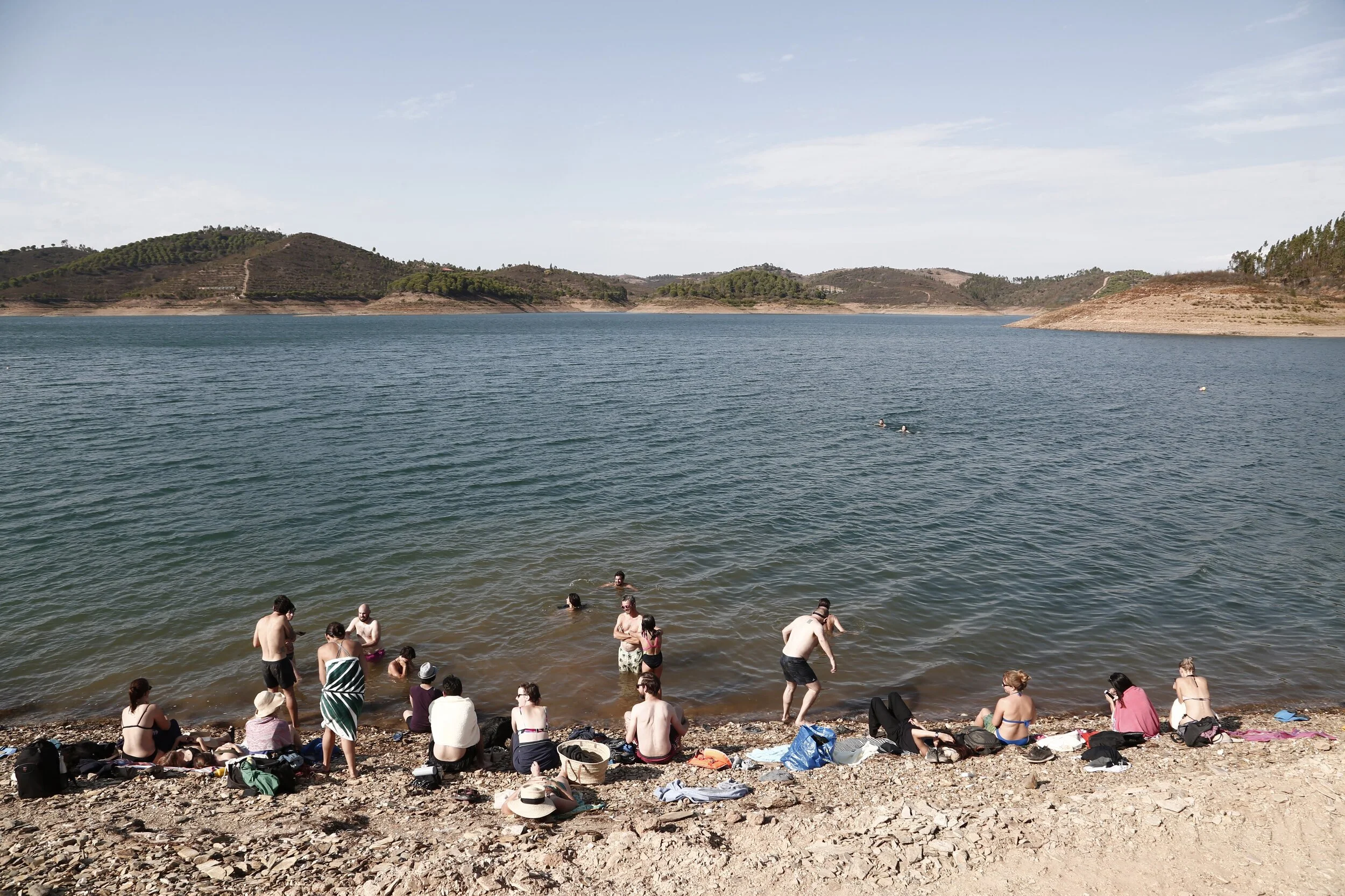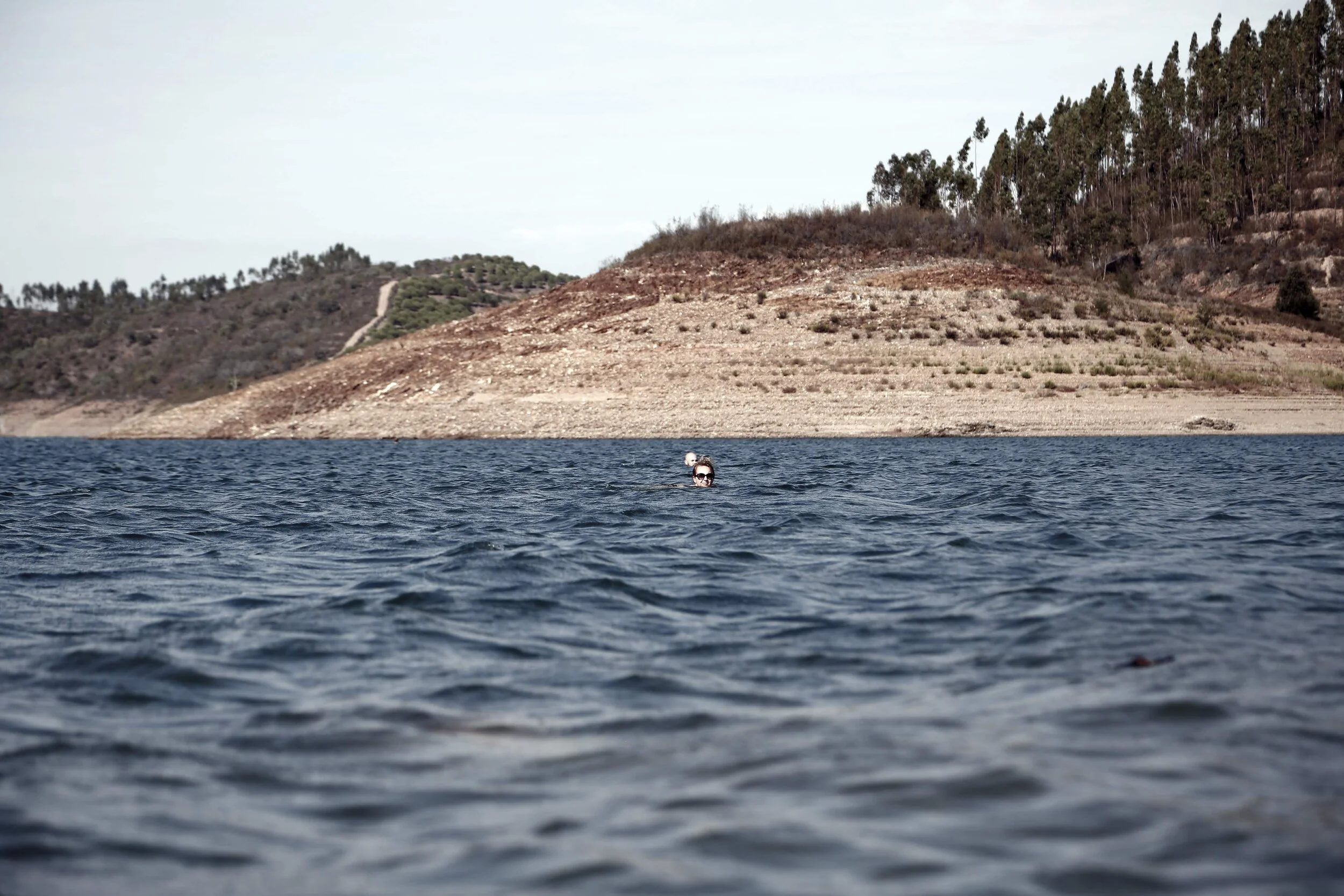ALENTEJO, portugal - AUGUST 19th to 29th, 2020
Craftsmanship meets digital fabrication - DESIGN & BUILD
POSTPONED to 2021 due to COVID-19- Please stay tuned for further news and we hope you can join us next year.
CONcept
Hands-on experience is crucial in the education of young designers, today most university programs follow aesthetic or product-driven paths. Makers are a new generation that looks into design processes rather than products.
This design-build program aims to strengthen the tradition of building and craftsmanship enhanced with the use of digital tools and computer simulations.
Strengthening design skills through the experience of fabrication, working with materials and building itself. The task for the students with the tutors, is to design and build, within a period of two weeks, two pavilions that will become a part of Clara's project in the rural area of Odemira in Alentejo, Portugal. Serving to enrich the experience of the place, emphasising the connection to the environment and temporality. The technology would mix between high-tech (digital fabrication techniques, environmental simulation) and lo-TEK(Traditional Ecological Knowledge represented by craftsmanship with basket-weaving artisans). The workshop would use the Living Building Challenge as a frame for design, construction and assessment in a regenerative way in harmony with nature.
These temporary structures are studies for future permanent alternative housing solutions to be built in the coming years.
GOALS
Learn the principles of regenerative and bio-climatic design
Learn how to acquire weather data and how to use them for environmental simulation
Learn to use Grasshopper for environmental studies, modelling and digital fabrication
Understand how to work in a team to design and build an actual project
Understand the principles of prototyping as a lean method for architectural design
Applied plant-based design for architecture through traditional craft
Learn how to weave with wicker and cane
Enhance communication skills
Schedule
4 days of training and skilling
1 days designing models and prototypes
5 days building
Who can apply
Architecture students and professionals
Design students and professionals with experience working on 3 dimensional pieces
Interested in experimenting and re-envisioning traditional techniques in natural materials
Interested in regenerative architecture and design
Process-driven hands on designers and architects
APPLICATION COST & DEADLINEs
Early bird: 550€*
Until June 15th (midnight GMT)
Regular: 500€*
From June 16th until June 30th (midnight GMT)
Selection will be announced by the 10th of July.
Payments due by the 17th of July.
* Includes:
- Teaching and material for fabrication
- Food: 3 vegetarian or vegan meals per day
- Accommodation: 10 nights in individual luxury tents with shared bathroom and kitchen at CLARA.
- Trips to the lake
Apply here
In partnership with and Hosted By
Clara, Center for Rural Future
https://claralab.org/
CLARA is a collaborative workspace and think tank located in an abandoned brick factory that once served as an economic and social anchor for the region.
Resurging as a Center for Rural Future, it hosts activities from residencies, cultural events, workshops, debates and symposiums to volunteer campaigns at the intersections of
Arts
Design and sustainability
Food and farming
Climate Change
Community empowerment
Sustainable architecture
Social entrepreneurship
Regionally anchored and internationally connected, it stimulates an open discourse on local issues to bridge the gap and create shared values between the urban and the rural.
Promoting interaction and participation, experimentation, research, innovation and the transfer of knowledge, it challenges patterns of thinking and explores contemporary solutions to bring new life to low density regions.
IN PARTNERSHIP WITH
LIVING FUTURE EUROPE
https://living-future.org/
Living Future Europe (LFE) is a non-profit association with the mission to make the world work for 100% of humanity, in the shortest possible time, through spontaneous cooperation without ecological offense or disadvantage of anyone, catalyzing the transformation toward communities that are socially just, culturally rich, and ecologically restorative.
LFE will play an active role in championing the International Living Future Institute programs in Europe, focusing on educating and assisting a broader audience of interested practitioners on how to build Living Building Challenge projects and help spur demand for healthy, transparent materials and Declare and Living Products.
The Living Building Challenge is the world’s most rigorous standard for green buildings. Living Buildings strive for net-zero or net-positive energy, are free of toxic chemicals, and lower their energy footprint many times below the generic commercial structure.
The International Living Future Institute (ILFI) is a nonprofit based working to build an ecologically minded, restorative world for all people. Using principles of social and environmental justice, ILFI seeks to counter climate change by pushing for an urban environment free of fossil fuels.
This workshop is pre-approved for the below Living Future Accreditation CEUs. Reporting will be managed according to accrediting body. LFE will issue digital certificates to all attendees based upon receipt of the sign-in sheet from the Co-host.
11 General LFA CE credits
Tutors
ADRIAN KRĘŻLIK - Architect
Architect, educator and creative entrepreneur dedicated to the application of contemporary science and technology into design processes. Founder of educational platform Architektura Parametryczna and a start-up Parametric Support, that researches the use of Artificial Intelligence for automation and optimization of design processes. He teaches is a PhD researcher at the University of Porto and teaches at the School of Form. He gained his professional experienced at Zaha Hadid Architects, FREE Fernando Romero and Rojkind Arquitectos.
Astrid Suzano and Fatima Durkee - architects
Astrid has worked in Rotterdam, Mexico City and Lisbon as an architect and project leader with a focus on residential and cultural projects. With realized projects in China, Rotterdam, Mexico City and Madeira.
She has also worked for several years in the contemporary arts sector in Portugal as galerist as well as a consultant and producer of exhibitions at the Lygia Pape Estate in Lisbon and Rio de Janeiro.
Fatima Durkee’s professional focus has been urban design and business development. With a concentration on cross-disciplinary projects between, architecture, design, sustainability, craftsmanship and social science. At the core of her work is the study of complex systems and the constant drive for a harmonious relationship between humans and the earth. She has worked in New York, Mexico City and Lisbon and is a member of the International Living Future Institute helping to set up the Living Future Collaborative in Portugal.
Together they co-founded the non-profit association Passa Ao Futuro in 2016 as a means to document, preserve, promote and activate the rich cultural heritage of Portuguese crafts.
Manuel Maria das Neves Ferreira
Lakeshore Bulrush/ Bunho Weaver
In 1989, Manuel did a Cultural Heritage - Furniture in Rush course that lasted 1 year followed by a 6 months internship. From the 10 participants that initially joined the course, only 5 managed to complete it. At the end of the course the Santarém’s city council invited the graduates to use the teaching space in order to continue practicing the craft and, as an incentive, donated both tools and the leftover materials from the internship. Despite the incentives, craftsmen slowly abandoned the project and, after 4 years, only Manuel remained making furniture in rush. In 1996, Manuel started his own business in a space also donated by the Santarém’s city council. His material is locally harvested from which he makes a line of furniture pieces using traditional techniques. His passion for the craft is what keeps him going, he has been teaching when possible and looks forward to passing this knowledge on to a younger generation in a serious way.
Domingos Vaz
Cane /Cana -Weaver
Born in a small village in the South of Portugal, Domingos started doing baskets, alongside his family, at a very young age. It is a family tradition that started out of the necessity to store dry fruits that where very common in that area. In order to go to high school, he was sent to a city along the Southern coast, Vila Real de Santo António. He later moved to Lisbon and while working at the Portuguese Ferry Company he studied at night and graduated in electro-mechanics. During this entire period he kept doing baskets every chance he had. He was lucky that the raw material, cane, he uses is a plague and exists all over the territory. Whenever he couldn’t find good canes he would use the basketry techniques on electrical wires to do baskets, toys, and other objects.
In love with the craft, after Domingos retired, he moved back to his hometown and since then has dedicated most of his time to basketry and teaching basket weaving techniques.
Copyright©2020 Passa Ao Futuro







